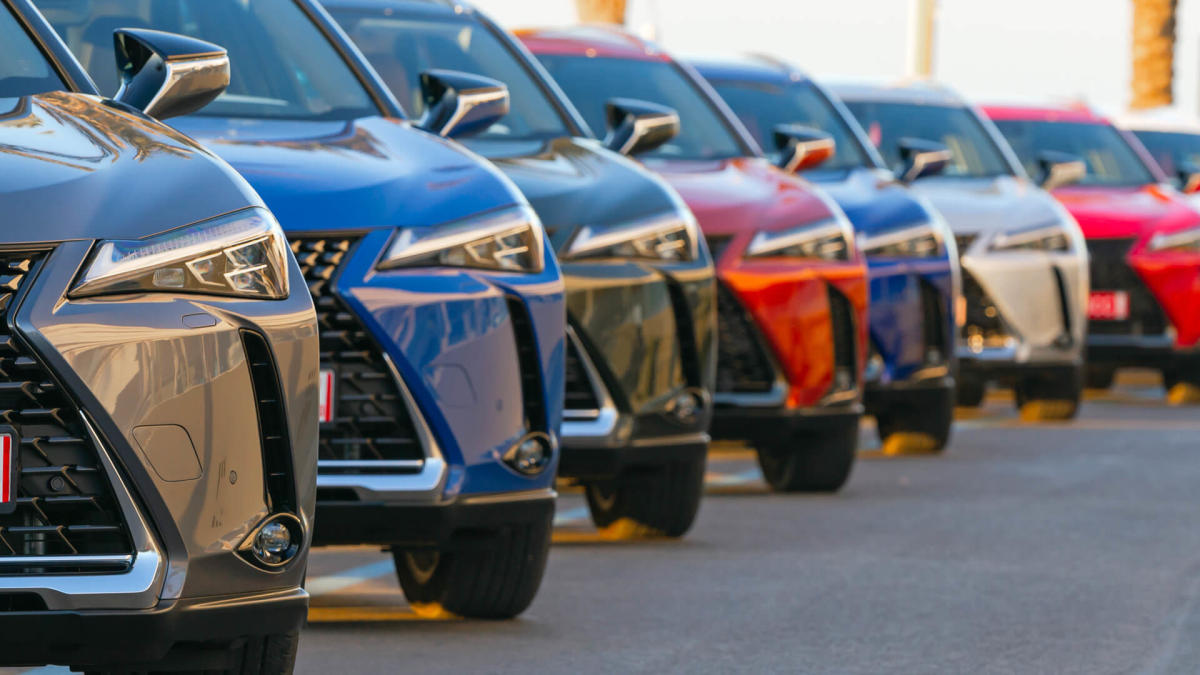If you’re looking for a good used car, you may want to consider a Lexus or Toyota.
Check Out: 9 Cars To Stay Away From In Retirement
Read Next: 7 Reasons You Must Speak To a Financial Advisor Before Spending $10,000 or More
In its first-ever brand ranking for used cars, Consumer Reports gave those two brands the top spots for reliability. In fact, they had quite the advantage over third-ranked Mazda. However, all three may be good brands to consider, given that they’ve had consistent average or better reliability ratings over the years.
Learn More: 6 Hybrid Vehicles To Stay Away From Buying
“Brands like Lexus and Toyota have a history of conservative redesigns, incrementally improving their entire product line, rather than introducing many all-new systems,” Steven Elek, Consumer Reports’s senior automotive data analyst, said in a statement. “Our data consistently shows over time that cars from those brands are reliable when new and they continue to be reliable as they age.”
Earning passive income doesn’t need to be difficult. You can start this week.
Best Used Car Brands
Here’s a look at the top brands and their associated reliability scores. According to Consumer Reports, “We calculated the brand-level used-car reliability scores by averaging the overall reliability verdict score for all models within a brand for the 104 through 2019 model years.”
-
Lexus: 75
-
Toyota: 72
-
Mazda: 59
-
Acura: 57
-
Honda: 55
-
Buick: 47
-
BMW: 46
-
Subaru: 46
-
Nissan: 45
-
Mercedes-Benz: 43
-
Cadillac: 42
-
Mini: 42
-
Lincoln: 42
Worst Used-Car Brands
Here’s a look at the list of the worst used-car brands and their associated reliability scores.
-
Volkswagen: 41
-
Volvo: 40
-
Audi: 39
-
Hyundai: 38
-
Chevrolet: 38
-
Kia: 38
-
Ford: 36
-
GMC: 36
-
Ram: 35
-
Jeep: 32
-
Tesla: 30
-
Dodge: 28
-
Chrysler: 27
Why Models Matter
While Lexus, Toyota and Mazda have shown consistently strong ratings across their model options, that’s not the case for many of the other brands.
“This is why it’s best to check the reliability ratings for each model year when buying a used car,” Elek noted in a statement. “Making assumptions can prove both costly and inconvenient.”
In addition, Consumer Reports advised, you should keep in mind that the reliability of individual models can vary from the brand average. With used cars, of course, each one is unique with its own history of use and service.
Used vs. New
If you’ve been researching cars, you probably notice that these used-car brand reliability findings are pretty different from new-car predictions. That’s because with new cars, Consumer Reports bases its analysis on the latest three years of reliability, along with brand history and other factors like shared componentry.
“The cars in this analysis are often from another generation, meaning they might not look like the current models or share many common components,” according to Consumer Reports. “Plus, automaker portfolios can change significantly over time, especially this past decade, when many companies replaced sedans and hatchbacks with SUVs and trucks.”
There’s a lot of information here to consider. So why pay attention to it at all when you’re in the market for a used car? “The data showed that buyers can limit costly repairs, reduce the risk of problems, and get more life out of a vehicle by focusing on certain brands over others,” per the Detroit Free Press.
More From GOBankingRates
This article originally appeared on GOBankingRates.com: Best and Worst Used Cars, Ranked in Reliability From Best to Worst








